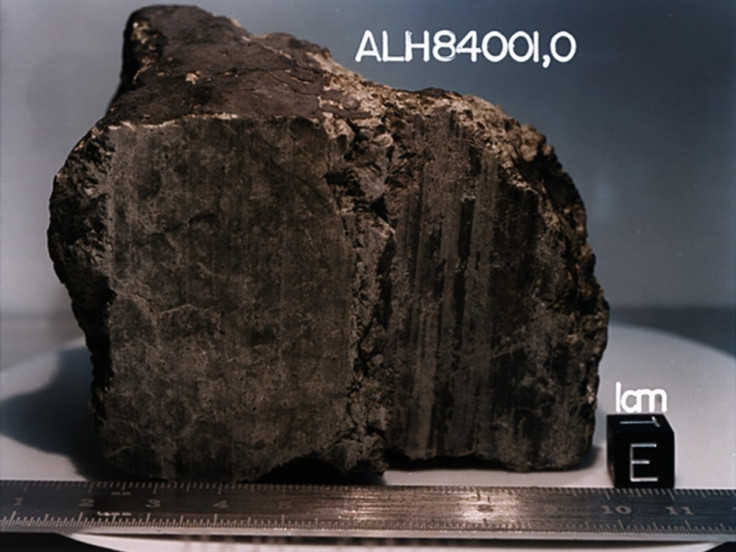Life in Mars? Scientists Discover Essential Blocks Of Life In Meteorites

Scientists have discovered molecules containing large chains of carbon and hydrogen, a key ingredient for the building blocks of life, in Mars meteorites.
Scientists from the Carnegie Institution for Science in Washington have found that these molecules in the meteorites actually came from Mars.
Earlier, a group of scientists had found these molecules in meteorites from Mars, but they disagreed that carbon came from Mars. They claimed that probably the meteorites got contaminated when they reached the earth's atmosphere.
Carnegie scientists have proved that organic carbon in meteorites actually came from Mars. They discovered this when they studied 11 Martain meteorites whose ages span about 4.2 billion years of Martian history. They detected large carbon compounds in 10 of them. The molecules were found inside of grains of crystallised minerals.
Scientists used an array of sophisticated research techniques to show that at least some of the macromolecules of carbon were indigenous to the meteorites themselves and not contamination from earth.
Next, the team looked at the carbon molecules in relation to other minerals in the meteorites to see what kinds of chemical processing these samples endured before arriving on earth. The crystalline grains encasing the carbon compounds provided a window into how the carbon molecules were created. Their findings indicate that the carbon was created during volcanism on Mars and show that ancient Mars had produced and stored carbon molecules.
"These findings show that the storage of reduced carbon molecules on Mars occurred throughout the planet's history and might have been similar to processes that occurred on the ancient Earth," said Andrew Steele, scientists at the Carnegie Institution for Science, in a statement.
Scientists claim that this new finding will help them detect evidence of life on Mars.
"Understanding the genesis of these non-biological, carbon-containing macromolecules on Mars is crucial for developing future missions to detect evidence of life on our neighboring planet," he added.
This research was funded by Nasa.
© Copyright IBTimes 2024. All rights reserved.





